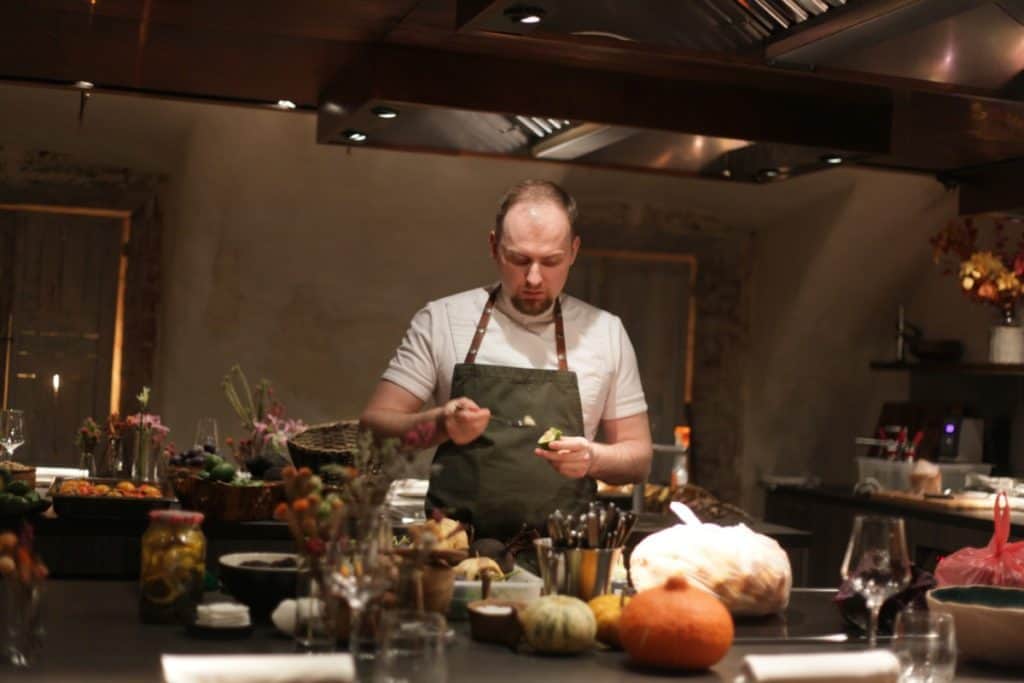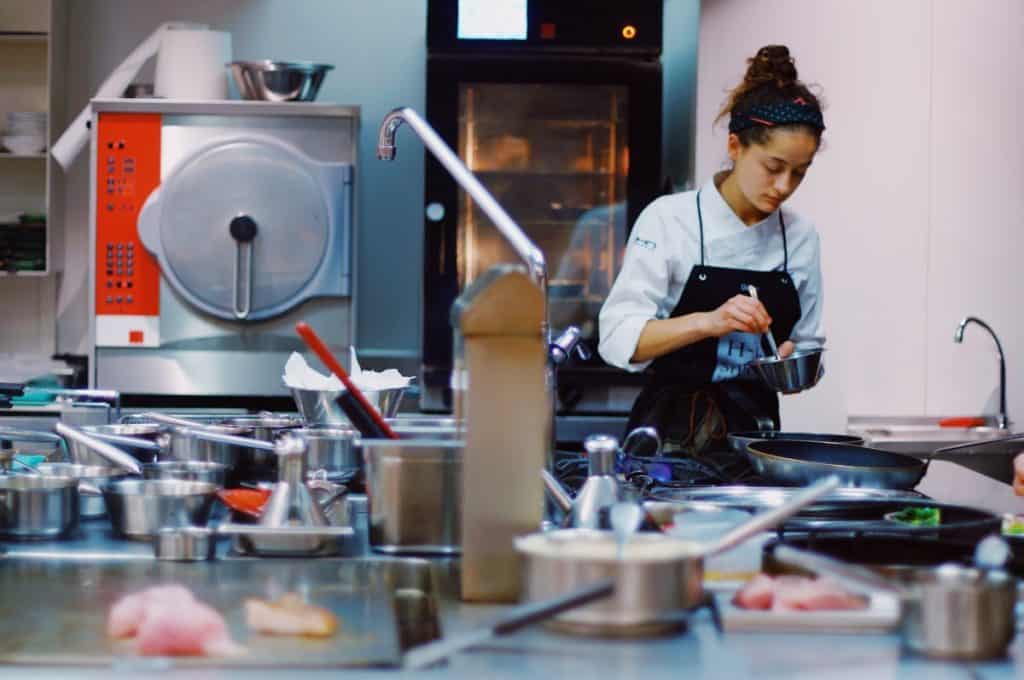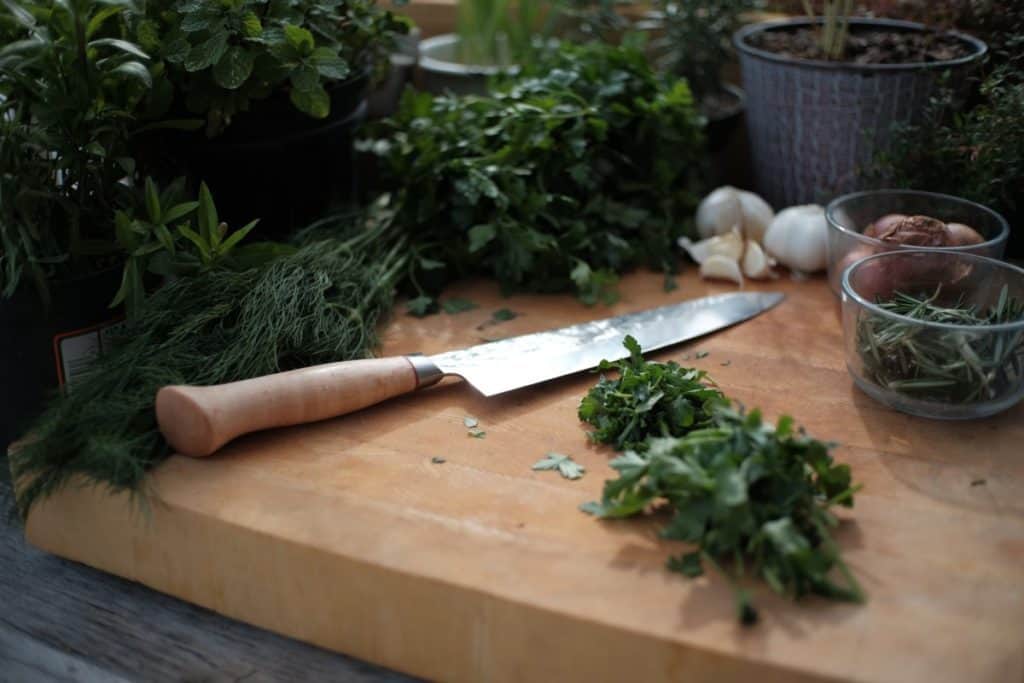
One of the great benefits of a chef career is that the barrier to entry is pretty low. In some careers, beginners can find themselves in a constant loop between not having experience so they cant get the job, but how do they get experience without the job?
Fortunately for those wanting to become a chef there are lots of steps we can take to close the gap between no experience and enough to get over the line and secure the job we want!
there are lots of steps we can take to close the gap between no experience and enough to get over the line and secure the job we want!
Like anything worth doing, it does require effort.
To begin a chef career with no experience is surprisingly straightforward. A career as a chef is very rewarding, but also extremely challenging so when trying to get our first chef job we need to convey to potential employers that we are passionate and willing to work hard.
There are so many people who come to the Head Chef’s kitchen door saying they want to become a chef but haven’t done anything to show that is anything more than a passing thought. If a candidate is not prepared to put in just a little upfront work then why should the Head chef take a chance on them?
Having said that, once a candidate shows they are serious, there are lots of opportunities out there.
Kitchens are constantly looking for fresh new talented chefs. Many will manufacture opportunities for the right individuals and create trainee roles if they believe their investment in time will be worth it.
With all that said, let’s look at 6 tips for landing our first chef job without any experience so we can take to bridge the gap between no experience and landing our first chef job!
Should A Chef Write A C.V. And Covering Letter?
Some readers may now be shouting, how can they write a C.V with no experience!?
On the C.V, put down your job or academic history and tailor it to the qualities that a Head Chef will be looking for.
A Chef’s C.V needs to communicate passion to the reader. Even if they have no kitchen experience, by focusing on the desired qualities they do have, their C.V will stand out from the crowd.
The Qualities a Head Chef will be looking for are
- Passion – How you would love to be a chef.
- Hard Work – Experienced working unsociable hours, or working hard to achieve something
- Keen to learn – Any extra activities that involve learning (could be learning a sport or a new hobby)
- Timekeeping – Mention how you are always on time, very important!
- Determination – How you don’t just quit at the first hurdle
- Teamwork – Any situations when you have played your part in a team
These qualities can be adapted into almost any experience. By highlighting these particular qualities we are demonstrating we have experience, even if we don’t have actual kitchen experience.
Personal qualities like these are worth picking out in the job responsibility section of the C.V but they really come into their own in the covering letter.
Especially for beginners the covering letter for the job is so important. It’s our chance to convey how passionate we are and how much we really want the job!
For example, if we were fresh out of school and we achieved a C at English, but we worked hard to get it, then we would talk about how we set our sights on achieving that C grade, worked really hard and got it!
I have read through many job applications and the covering letter is my first point of call. If the role is for a more senior position, the C.V and previous work experience plays an important part. However, for trainee chef roles , I was aware there wouldn’t be much to look at on the actual C.V so focused most of my attention on the covering letters!
, I was aware there wouldn’t be much to look at on the actual C.V so focused most of my attention on the covering letters!
Tailor each covering letter individually. They can follow the same format but we must always include the name of the place we are applying to. Generic covering letters, sent out to lots of restaurants, do not perform well.
How Can A Chef Learn About The Catering Industry?
Anyone looking to become a chef should familiarise themselves with the basic terminology of the kitchen. Understanding the rank structure of a kitchen is a great starting point as well as a few other key areas.
This may come across self-serving, but take some time to look around the site and learn the basics around what life as a chef is like. Particularly this kitchen hierarchy article . Understanding the difference between a Commis chef and a Sous chef
. Understanding the difference between a Commis chef and a Sous chef etc is vital.
etc is vital.
If a chef with no experience where to apply for a Chef De Partie job it would simply be put in the bin. A lot of time wasted when 5 minutes of research could have saved all that time!
job it would simply be put in the bin. A lot of time wasted when 5 minutes of research could have saved all that time!
This learning all we can about the industry is part of us bridging the gap between no experience and knowing just enough to get our foot in the door.

Should I Apply For Commis Chef Jobs With No Experience?
Those looking to become a chef should apply for jobs titled, trainee chef, apprentice chef, trainee commis chef or commis chef. There are slight differences to each of the roles which will be highlighted in the job description but overall these are the entry level positions.
As we can see there are four different types of roles we can target when looking to secure our first job. The only role in that list which may require someone who is already qualified will be the Commis Chef role.
role.
However, different kitchens are after different candidates when advertising for Commis chef positions. What we mean by this is that one restaurant may be happy to take on someone with no experience, where as others may want a candidate to have a lot of experience and to be qualified.
Search for these terms and then read the job description to get the full picture.
My personal experience; I secured a Commis chef role even though I wasn’t qualified as the Head chef liked my enthusiasm. I was then able to negotiate completing an NVQ
whilst in work. There are many ways to enter the catering world so try lots of paths!
Will A Food Hygiene Course Help Get A Chef Job?
An online food hygiene course can be a great way to gain some experience and help to secure your first chef job. It demonstrates how serious you are about your chosen career path, for a very small investment of time and money.
A basic food hygiene course is quick to complete and will put a candidate above the others. The course can then be used to highlight some of the qualities we talked about earlier. For example “I am keen to learn so I used my own initiative to study and complete a food hygiene certificate” that kind of thing.
course is quick to complete and will put a candidate above the others. The course can then be used to highlight some of the qualities we talked about earlier. For example “I am keen to learn so I used my own initiative to study and complete a food hygiene certificate” that kind of thing.
An online course I recommend is linked here as it is awarded by a recognised governing body within the industry.
Will Cooking Classes Help Get A Chef Job?
Completing short cooking classes is a great way for wannabe chefs to increase their chances of securing a job by having some food related certificates to place on their C.V. The other great benefit is the chance to meet people who are already in the industry.
Taking an evening course does not have to mean taking a complete NVQ!
For example, It can be as simple as a four night bread making course, or a two day pizza making course. By choosing a course we will enjoy it also gives us a great confidence a lift.
Being able to mention these courses in our covering letter and C.V really gives our application a boost because now we are combining passion with an actual get out there and do it factor. What employer could resist that!?
As mentioned above the other great benefit is the people we are likely to meet on the course. Even the most seasoned professional chefs still take specialist courses. It would not be at all uncommon to find ourselves on a pizza making course with someone who has been a chef for many years.

These face to face meetings can be invaluable. If we try and get to know the others in the class, which usually happens as cooking is a very sociable event; we never know what opportunity may come along.
Can A Cook Become A Chef?
Working as a cook can be a great pathway into becoming a qualified chef. This route has a lower barrier to entry whilst allowing a person to gain some much needed kitchen experience. However, this pathway also has disadvantages.
To clarify this point; what I mean here is that we could take a cook’s job in a lower standard restauran t to gain some experience. For example, taking a job in a chain restaurant kitchen, such as Weatherspoons.
t to gain some experience. For example, taking a job in a chain restaurant kitchen, such as Weatherspoons.
These style of kitchen rely on doing large volume, and as a lot of the produce are bought in, the time needed to bring a cook up to speed is a lot less. Having this type of kitchen experience can help tick the hard work, unsociable hours and team work boxes.
and team work boxes.
However, and this is a big one talking from personal experience, these jobs can be hard to progress on from!
We cannot learn to be chefs and cook from scratch in this environment. Add to that the intensity, combined with the long hours and trying to look for another job whilst employed in one of these kitchens can be tricky.
I found that the experienced gained may have helped me get my first job, but I couldn’t help feeling the time could have been better spent elsewhere. I really learnt the hard way
that even after 6 months in a chain style kitchen I had to pretty much go back to zero when taking a Commis chef job in a kitchen that cooked from scratch.
Overall it can be a good experience, the team atmosphere is generally great, just be aware of the possible pit falls.
To Sum Up
My hope is that this article has given some genuine practical advice that beginners can move forward with.
The best advice I can give is get yourself out there! Apply for jobs and get feedback from the unsuccessful ones. As I mentioned at the start the barrier to entry really isn’t high so keep trying until you break through.
If anyone is really struggling then feel free to reach out via the contact form in the about us section and I’ll do my best to help!
